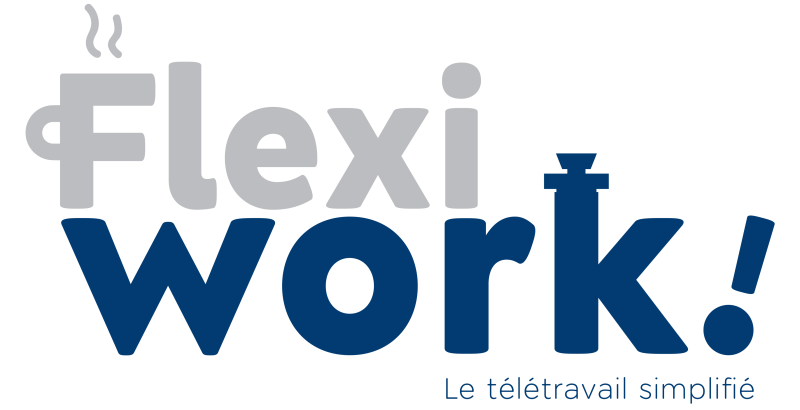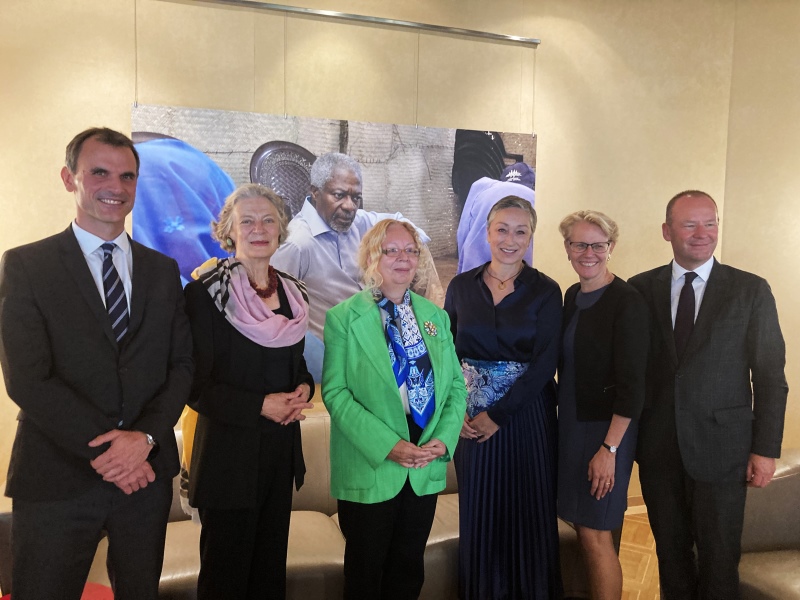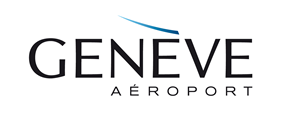 Go to Summary
Go to Summary

Managing the crisis and recovery
Following on from 2021, the first quarter of 2022 saw the Human Resources department managing the human and financial impact arising from the financial crisis that shook the company. The focus was on tracking the reduction in working hours, monitoring the number of positive cases of COVID-19 and people in quarantine and keeping employees updated on the situation.
By way of reminder, in 2021 Genève Aéroport was obliged to restructure and cut its headcount (22 positions were lost). While the position was still fragile at the start of 2022, the company continued to concentrate on optimising resources. At the end of 2022 the headcount in full-time equivalents (FTEs) was down 9.89% compared to March 2020. FTEs fell from 997.93 on 31 December 2021 to 971.8 on 31 December 2022. A new budgeting system was installed to allow the change in the number of employees to be monitored closely.
In spite of this reduction 124 hires were made over the year and 54 new employees joined. We continue to favour internal mobility, with more than half of positions filled from inside the company. As the year swung back and forth from financial crisis to recovery, the Human Resources department continued to work on other strategic focuses that fully fit with the policy and strategic thrusts of Genève Aéroport.
Staff costs in 2022
971,8
FTEs
12%
of hours worked at home
Making the company even more attractive
One of these strategic thrusts is to equip the company with HR policies, systems and overall conditions that meet its needs and are attractive to current and future employees. The latter are also keen to strike a better work/life balance and teleworking is essential nowadays.
Genève Aéroport is fully aware of the changing, demanding and tight situation on the labour market. Corporate social responsibility and environmental commitment are factors candidates look at increasingly often. Also, as in the technology and manufacturing sectors, some parts of the aviation industry can scarcely attract applicants. Genève Aéroport is devoting a great deal of effort to working on its attractiveness and on staying competitive on the jobs market.
New remuneration policy
As a way of contributing to the economic viability of the company, the Board of Directors asked the Director General to put forward a new remuneration policy that will make it possible to better manage the payroll while making Genève Aéroport more attractive as an employer. The aims of the project also included recognising performance, encouraging development of skills and providing greater transparency.
With this is mind, the Human Resources department drew up a draft of a new remuneration policy meeting the objectives identified and submitted it to the Executive Board and the Board of Directors. The Board of Directors noted this and instructed the Executive Board to consult the social partners starting in early 2023, with a view to then approving the new policy and putting it into effect on 1 January 2024. The project will also involve revising the staff regulations, several clauses of which will need to be reviewed in 2023.
On top of this ambitious project, Human Resources is also keen to develop a healthy working environment and a culture of responsibility and setting an example, while also encouraging innovation.
Working from home
The foundations for working from home were already in place before the health crisis, but lockdown accelerated the integration of this way of organising work and drove changes in practice. It has moved from being essential during the pandemic to a badge of attractiveness, modernity and agility.
The Flexiwork project had already started before the epidemic and came into effect during the second quarter of 2022. All employees can now take part if their job allows, up to a maximum of three days for a 100% activity rate. As a result, 76% of those eligible made use of the programme this year.

A total of 36% of employees worked from home in 2022 and 12% of hours were performed at home (mandatory teleworking plus Flexiwork).
For comparison, the figure was 19% in 2021 and 16% in 2020.
Flexiwork is boosting our ambition to make the company more attractive by organising work so it allows a better work/life balance based on trust.
Maintaining dialogue
The Executive Board attached great importance to maintaining a dialogue and keeping employees informed on a regular basis. By 2021, four video conferences with all staff had been organised each quarter to review the air traffic, financial situation and organisation of the Airport. In 2022 these sessions became face-to-face again and a new meeting was organised every quarter, each broadcast on Webex so all could take part.
Surveying the teams
A new communication channel opened up at the company in 2021: flash polls called Pulse Surveys. These aim to ask staff about various issues and measure their general sense of satisfaction with their professional situation. The surveys have become a permanent feature and four were conducted in 2022, with a response rate of over 50%. They have been followed up by specific action within the company, such as adjusting the rules in the directive on working from home and holding online training sessions to help people returning to work after the partial lay-off period.

Staff Committee
Genève Aéroport is at pains to ensure the social dialogue in the company is of high quality. Following the collective resignation of the members of the Staff Consultative Committee at the end of 2021, the airport organised a new election early in 2022. A new committee was elected and a new chair appointed. Multiple meetings have been held to strengthen social dialogue and consult the staff representatives efficiently.
Whistleblowers
The law on protecting whistleblowers in Geneva came into effect in March 2022. This provides for employees of the state, public sector institutions and municipalities covered by the law to be able to report failures or illegal behaviour anonymously over a secure external website. Genève Aéroport had been anticipating this since 2020 and put its own secure platform in place.
Developing the management culture
Another strategic focus for Human Resources was a new management training course launched in 2022. The customised curriculum was set up in 2021 with HEG Geneva to adapt the content to the culture, needs and expectations of the company. Two cohorts went through the programme in 2022, which will continue in 2023 to educate about 50 managers in total.
To help develop healthy working environments and a culture of responsibility and setting an example, a management charter was also finalised and presented to all managers, with the participation of the Executive Board, to raise awareness of the behaviour expected from them when they carry out their duties.

The code of conduct issued and adopted in 2021 was fully rolled out to all departments this year. The document provides a reminder of good practice and the behaviour everyone is expected to demonstrate.
Digitalising human resources
Human Resources took a major step towards digitalisation by installing a new employee data management tool. The SAP SuccessFactors suite makes it easy to manage and analyse HR data. Since the last quarter of 2022 managers have had access to the data on their teams and employees can freely consult their own data, as well as update their personal information independently.
SuccessFactors will see further development in 2023 with the addition of a dedicated recruitment module. Internal and external candidates will be able to apply online for vacancies at Genève Aéroport and managers will be given the freedom to handle applicant files in collaboration with their HR partner. The purpose of the tool is to boost simplicity, modernity and agility.
In another sign of technical progress, staff were provided with a new tool for announcements and managing absences. This offers a simple and efficient way for employees to inform the insurance company of leave taken for sickness or accidents.
Finally, online training, having been rare before the COVID-19 epidemic, has now spread to cover a whole host of subjects. A e-learning course on emotional intelligence was launched in 2022. Several more will follow in 2023.
An opening on the world
Intense protocol activity
In-person international conferences held in Geneva took off again in 2022. A direct consequence of this was that the Protocol department was much busier.
Two important events over the last 12 months stand out:
- The 75th World Health Assembly in May 2022. 260 receptions were organised.
- The WTO’s 12th Ministerial Conference, held 6-25 June 2022. This had been cancelled three days before it was due to open in 2021 because of the Omicron variant in South Africa.
Preparations for the two conferences led to particular intense protocol activity on the platform.
Overall in 2022 the Protocol department carried out 3,254 protocol receptions, including 36 for heads of state, 14 for prime ministers and 422 for members of royal families. Protocol receptions are reserved for heads of state, prime ministers, cabinet ministers, heads of international organisations, members of royal families and other official dignitaries.
On 3 October 2022, Genève Aéroport officially inaugurated the protocol lounge renamed Espace Kofi Annan. Initially scheduled for spring 2020, the event had been postponed due to the pandemic.

Firefighting
The Airport Rescue and Firefighting Department (SSLIA) is on call round the clock every day of the year.
Several important events occurred in 2022. In May a fire started close to the runway on the roof of the future asylum seekers’ centre. Gas canisters caused five explosions and metal debris was blown tens of metres around the site. Heavy smoke billowed out. Given the scale of the fire, the SSLIA immediately informed the Fire and Rescue Service (SIS) switchboard, who took over operations in line with procedure. Air traffic was halted for two hours, causing 22 flights to be cancelled. Almost the entire resources of the SSLIA were deployed.
Explosions near the runway
Firefighters on the front line (french)
The SSLIA may also be called on to intervene in the canton of Geneva at the request of the SIS, as was the case when fire ravaged the climbing wall centre in Satigny in May.
In November the airport organised the biannual crisis exercise required by the FOCA. Called “Collidere”, the 2022 scenario assumed a collision between a Boeing and a private jet. The aims were to test:
- The processes in the airport emergency plan.
- The coordination between those involved and the leadership bodies and senior management in the sector concerned by the accident.
- The handover from the SSLIA to the Fire and Rescue Service.
- The deployment of the Emergency Medical Post.
- The care of unharmed survivors and making contact with the families and loved ones of victims.
Collidere
Crisis exercise
Ambulance staff work across the whole of the canton, and in part of the canton of Vaud too, in response to calls to 144. The SSLIA also assists its partners in rescue arrangements on the lake.

